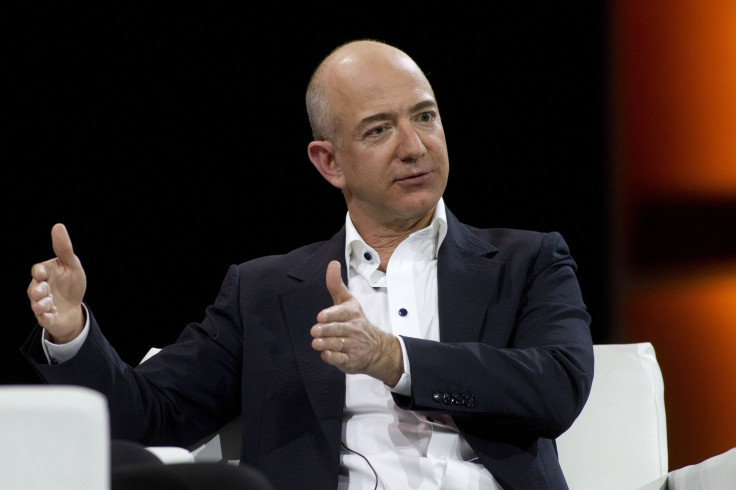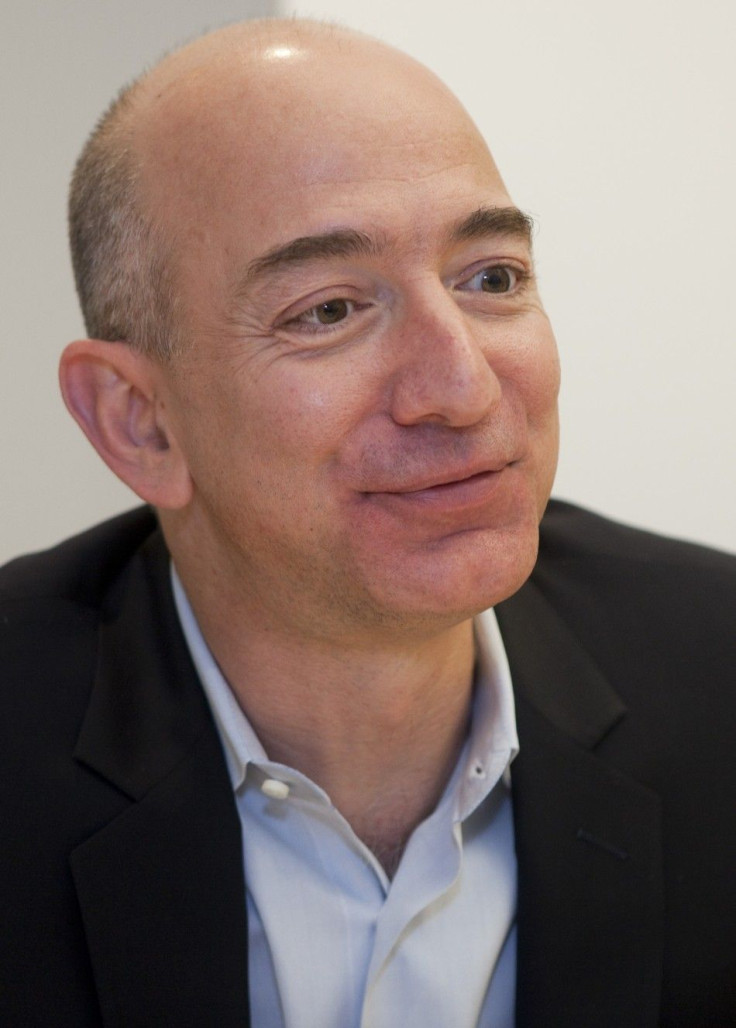Will Jeff Bezos’ Politics Change The Washington Post?

Before Monday, Amazon Inc. founder and CEO Jeff Bezos was a sporadic interlocutor in politics, making a couple of big donations to support pet causes and throwing a few thousand dollars here and there at preferred candidates.
But with the wholly unexpected announcement Monday afternoon that he will purchase the Washington Post for $250 million in cash, Bezos’ political life will come under intense scrutiny, and he will become at least partly a creature of the Beltway despite living across the continent in Seattle, "the other Washington," as he called it Monday.

Once known as a bastion of liberal reportage and punditry in the nation’s capital, and perhaps the nation’s second-greatest daily still putting ink to newsprint today, the Post remains one of America’s major papers. Even a slight shift from that successful model and ideological bent would likely send many of the remaining loyal readers and employees packing.
Bezos, for his part, does not seem to be a conservative in the Rupert Murdoch mold, at least when it comes to social issues. His biggest foray into politics came in 2012, when he and his wife, MacKenzie, donated $2.5 million to the Seattle-based pro-gay-marriage group Washington United for Marriage.
The contribution is widely believed to be the largest donation to a same-sex marriage advocacy group in American history, and it was made to fund what ended up being a successful referendum drive to legalize gay marriage in Bezos’ home state. It was a donation that significantly raised his political profile, and it far outweighed any previous political donation he has made.
But Bezos' largest outlays in support of issues reveal the other side of his political persona, the one that may prove to be more consequential in the long run. Bezos has a very strong libertarian streak, which feeds some views that may not sit well with many in the Post newsroom.
For instance, in 2010 he donated $100,000 to oppose a state measure that would have raised taxes on the wealthy; and in 2004 he gave $100,000 to support a charter schools proposal, according to the Seattle Times.
Bezos tends to spread his individual political donations among Republican and Democratic candidates, but he seems to support a fiscally conservative agenda that's unlikely to match up with the Post’s liberal tradition.
And there could be some other tough adjustments ahead for Post employees, as Bezos also has a reputation for being a very hands-on boss. A 2009 Portfolio.com profile of the CEO described him as “at once a happy-go-lucky mogul and a notorious micromanager ... an executive who wants to know about everything from contract minutiae to how he is quoted in all Amazon press releases."
Worse, Amazon came under intense heat in 2011 when a blockbuster investigation by Allentown, Pa., paper Morning Call revealed that employees at a Pennsylvania facility were subjected to harsh working conditions.
At the same time, Bezos has been known to criticize the emphasis on shareholder demands and short-term profits over all else that dominates corporate America today, the Post noted in its Monday announcement of the impending acquisition.
“The three big ideas at Amazon are long-term thinking, customer obsession and willingness to invent,” he has told Fortune.
And Bezos wrote in a Monday letter to Post employees that he doesn’t intend to amend the paper’s “values,” though its business model could undergo some major changes.
“[T]he key thing I hope people will take away from this is that the values of The Post do not need changing. The duty of the paper is to the readers, not the owners,” he said. “We will continue to follow the truth wherever it leads, and we’ll work hard not to make mistakes. When we do, we will own up to them quickly and completely. I won’t be leading The Washington Post day to day. I am happily living in ‘the other Washington,’ where I have a day job that I love. Besides that, The Post already has an excellent leadership team that knows much more about the news business than I do, and I’m extremely grateful to them for agreeing to stay on.”
It remains to be seen what will become of the Post under Bezos’ reign, but the days of the newspaper’s preeminence have faded fast as its circulation fell by 40 percent from 1999 to 2012, and the paper’s staff was cut by hundreds of positions in recent years.
The heady days of the groundbreaking Watergate and Pentagon Papers investigations seem long ago, but with its wealthy new owner, the Post seems poised to ride out the storm that has wracked many smaller papers across the nation. Bezos is the kind of long-view, deep-pocketed benefactor who may be able to allow it to continue to do so, as Murdoch has done with the Wall Street Journal.
And for one young Post newsroom employee who spoke to the International Business Times shortly after the Bezos acquisition was announced Monday, the potential benefits outweigh the possible drawbacks of the paper's unconventional new leader.
"I honestly think this is a good move for the business. I'm not concerned about any potential political leanings. If they occur, I'm sure folks in the newsroom will react," the staffer said. "I'm looking forward to having leadership that will encourage rapid innovation."
What we don’t know is if we’ll recognize what the Post becomes once Bezos takes it under his wing, and if it will maintain its traditions or run a different course, as the Journal has under Murdoch.
For what it’s worth, it seems that Post CEO Donald Graham -- whose family has long owned the paper -- genuinely is of the belief that the Post will live on, as he told his staff Monday.
“The Post could have survived under the company’s ownership and been profitable for the foreseeable future. But we wanted to do more than survive,” Graham said. “I’m not saying this guarantees success, but it gives us a much greater chance of success.”
© Copyright IBTimes 2024. All rights reserved.











